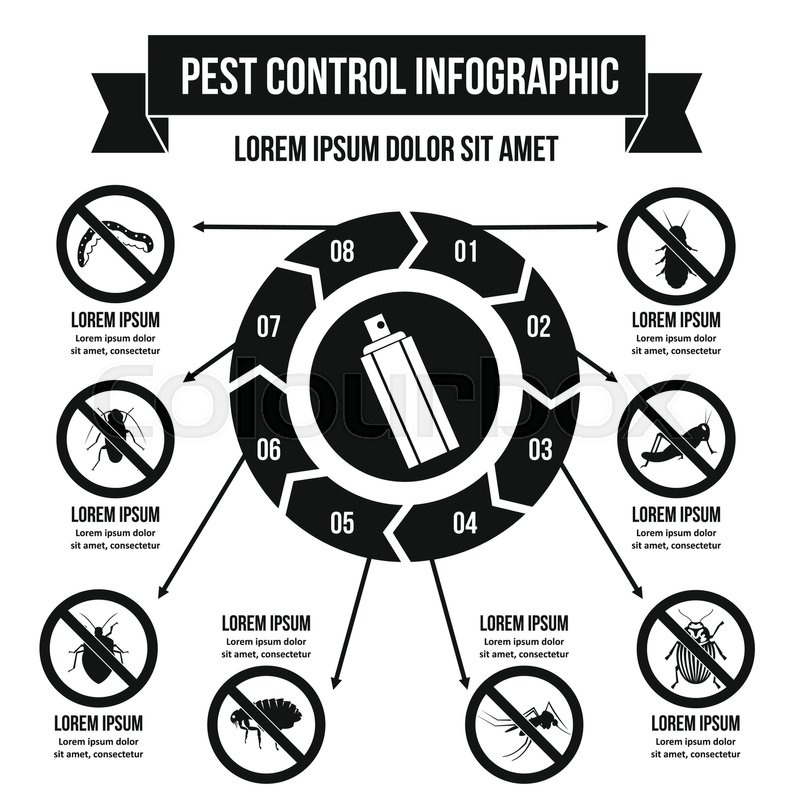Revealing The Techniques Utilized By Bug Control Specialists Beyond The Use Of Sprays
Revealing The Techniques Utilized By Bug Control Specialists Beyond The Use Of Sprays
Blog Article
Content Writer-Vazquez Paaske
Are you tired of counting only on sprays to handle parasites in your house or office? While sprays can be effective, pest control specialists have actually created advanced techniques that go beyond just splashing chemicals.
These strategies not just provide much more reliable and resilient remedies, but also focus on lessening making use of hazardous pesticides. By discovering these innovative techniques, you will discover a whole new world of bug control techniques that are not just reliable, however also eco-friendly.
So, are you ready to take your bug control video game to the following degree?
Integrated Parasite Administration (IPM)
If you're trying to find an efficient and environmentally-friendly approach to pest control, Integrated Parasite Monitoring (IPM) is the solution you require. IPM concentrates on long-lasting avoidance and administration of bugs, rather than just counting on chemicals. This strategy thinks about the certain requirements and behaviors of parasites, along with the surrounding atmosphere.
By utilizing a combination of techniques such as organic control, environment adjustment, and targeted chemical use, IPM intends to lower the reliance on chemical treatments and decrease damage to non-target microorganisms.
One crucial facet of IPM is monitoring and recognizing parasites accurately. This includes frequently examining and examining the pest population, as well as determining the certain varieties existing. By understanding the biology and behavior of pests, parasite control professionals can develop targeted approaches to interrupt their life process and decrease their numbers.
Another vital aspect of IPM is making use of non-chemical control approaches whenever feasible. This can consist of physical obstacles, such as mounting screens or sealing fractures and holes, to prevent pests from entering buildings. Additionally, cultural practices, like correct hygiene and waste monitoring, can aid eliminate insect food resources and reproducing grounds.
When chemicals are needed, IPM concentrates on utilizing them carefully and as a last hope. This implies choosing the least toxic and most reliable option, applying it precisely and only to influenced areas, and adhering to all security guidelines. By minimizing pesticide usage, IPM minimizes the possible risks to human health and the atmosphere.
Biological Control
To better enhance the efficiency of Integrated Pest Management (IPM), the following subtopic we'll explore is the method of organic control. This method utilizes all-natural killers or parasites to control bugs.
Here are four crucial elements of biological control:.
1. Intro of natural adversaries: In this approach, beneficial bugs or organisms are introduced to the location ravaged with parasites. These all-natural enemies victimize the bugs, assisting to lower their populace.
2. Read the Full Piece of writing of natural opponents: As opposed to introducing new organisms, this strategy concentrates on developing an ideal setting for existing beneficial bugs. This can be attained via giving food, shelter, and water resources.
3. Augmentation: Right here, the number of all-natural opponents is raised artificially by reproducing and launching them into the infested area. This aids to quickly minimize the pest population.
4. Push-pull strategy: This technique integrates repellents and attractants to adjust the behavior of pests. Repellents push pests away from crops, while attractants draw them in the direction of trap crops or areas where they can be conveniently managed.
Environment Modification
Habitat modification plays a critical duty in pest control by modifying the environment to prevent pest problems. By making changes to the physical attributes of an area, you can produce an inhospitable setting for insects, making it harder for them to make it through and thrive.
One typical technique of habitat adjustment is removing or minimizing prospective food sources for parasites. This can include correct waste administration, securing containers, and tidying up food crumbs.
In addition, removing or lowering areas of standing water can assist control pests like insects.
Altering the landscape by cutting trees and hedges away from structures can also protect against bugs from accessing your residential property.
Final thought.
So there you have it - the advanced techniques used by pest control experts surpass just spraying chemicals. Integrated Parasite Administration (IPM) integrates different approaches to effectively manage insects, while biological control uses natural enemies to maintain bug populaces in check.
Environment modification likewise plays an essential role in protecting against pest infestations.
Did https://www.bobvila.com/articles/mice-exterminator-cost/ recognize that according to a research study, applying IPM strategies minimized chemical usage by an average of 71%? This not just shields our wellness and the setting however also conserves money in the long run.
